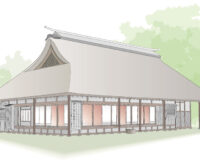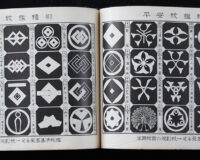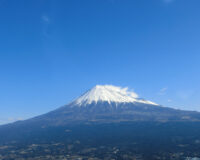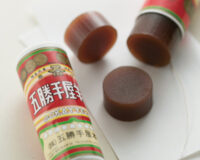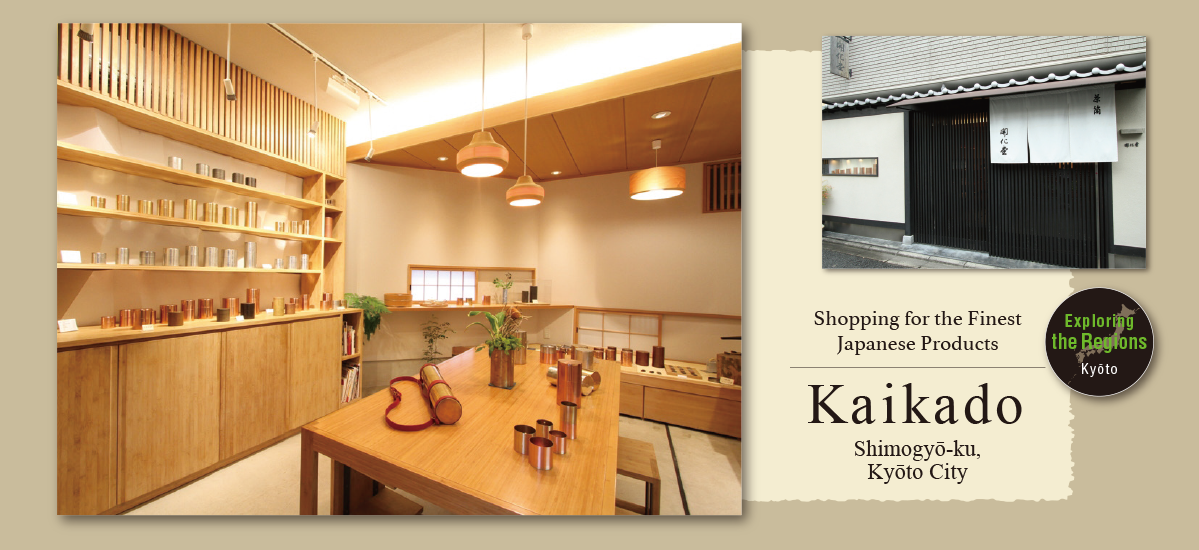
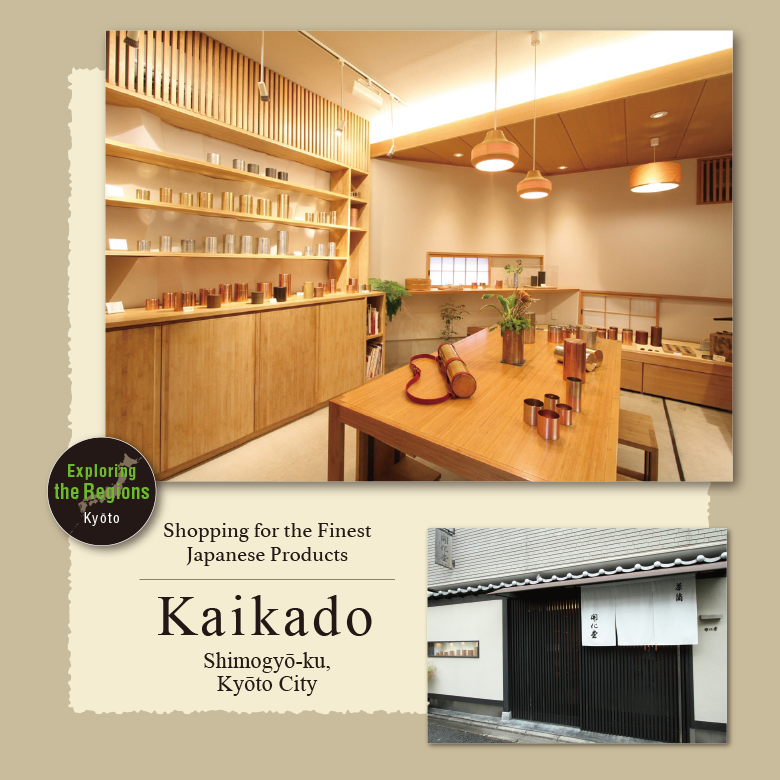
Kaikado, a venerable family-run business in Kyōto with a reputation for excellence, has been handcrafting metal canisters and tea caddies from copper, tin, and brass since 1875. These heirloom items, delightful to look at and lovely to hold, develop a soft, warm patina with years of use.
Photos and Text : 谷口哲 Akira Taniguchi / English Version : Judy Evans
Keyword : Tea Caddies / Kyōto / Handcrafts / Shopping / Shopping for the Finest Japanese Products Series / Kaikado / Metal Canisters
Kaikado’s small workshop and flagship store in Kyoto’s Kawaramachi district is tucked away on a side street between Kawaramachi-Dōri and the Kamo River, only four minutes’ walk south of the Gojō-Kawaramachi intersection. Kaikado, a long-established Kyōto business with a reputation for excellence, was founded during the Meiji Era (1868 – 1912) when Japan first started importing tinplate from Britain. The name of the company is a nod to the term “Bunmei-Kaika”, meaning “Age of Enlightenment” – a catch phrase in common use at this time. The original 130-step manufacturing process conceived by the company’s founder has been handed down to the present generation and is still in use today, largely unchanged.
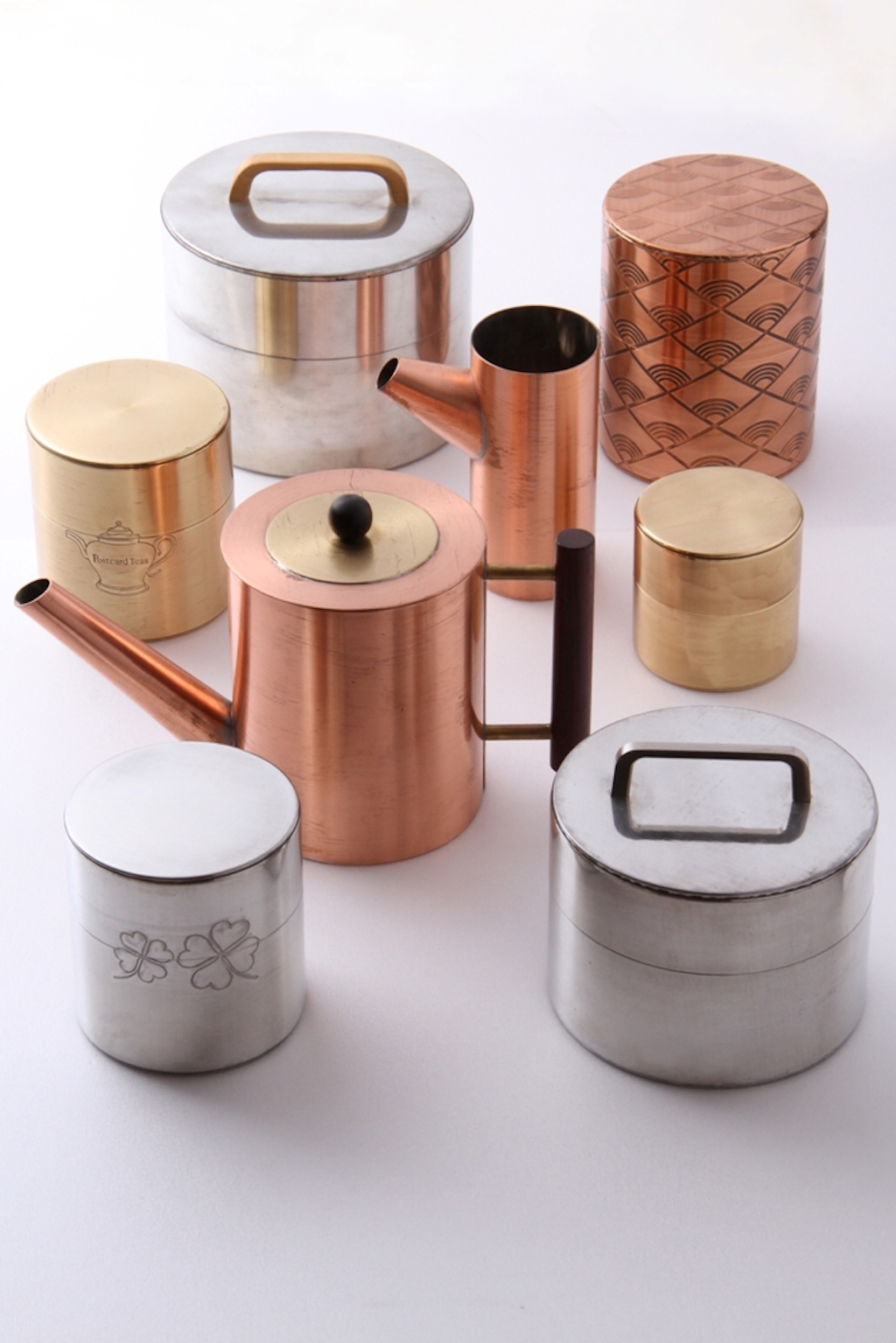
Sixth-generation master craftsman Takahiro Yagi now manages the company and works with a team of craftsmen, including his predecessor, fifth-generation master Seiji Yagi, hammering out tea caddies in a workshop annex adjacent to the retail store. The tea caddies are all handcrafted and, he tells us, while the containers might appear straight, in fact they all have a slight bulge to them. This feature, which improves airtightness, relies on the craftsman’s finely tuned senses and can only be achieved through years of practice.
When the lid is placed over the opening of the canister, it slides gently shut all by itself. This shows the absolute precision with which the measurements of the diameter have been calculated. According to Takahiro san, perfecting this is the most difficult part of making the canisters. It took him years to develop the same delicate senses and skills as his predecessors.
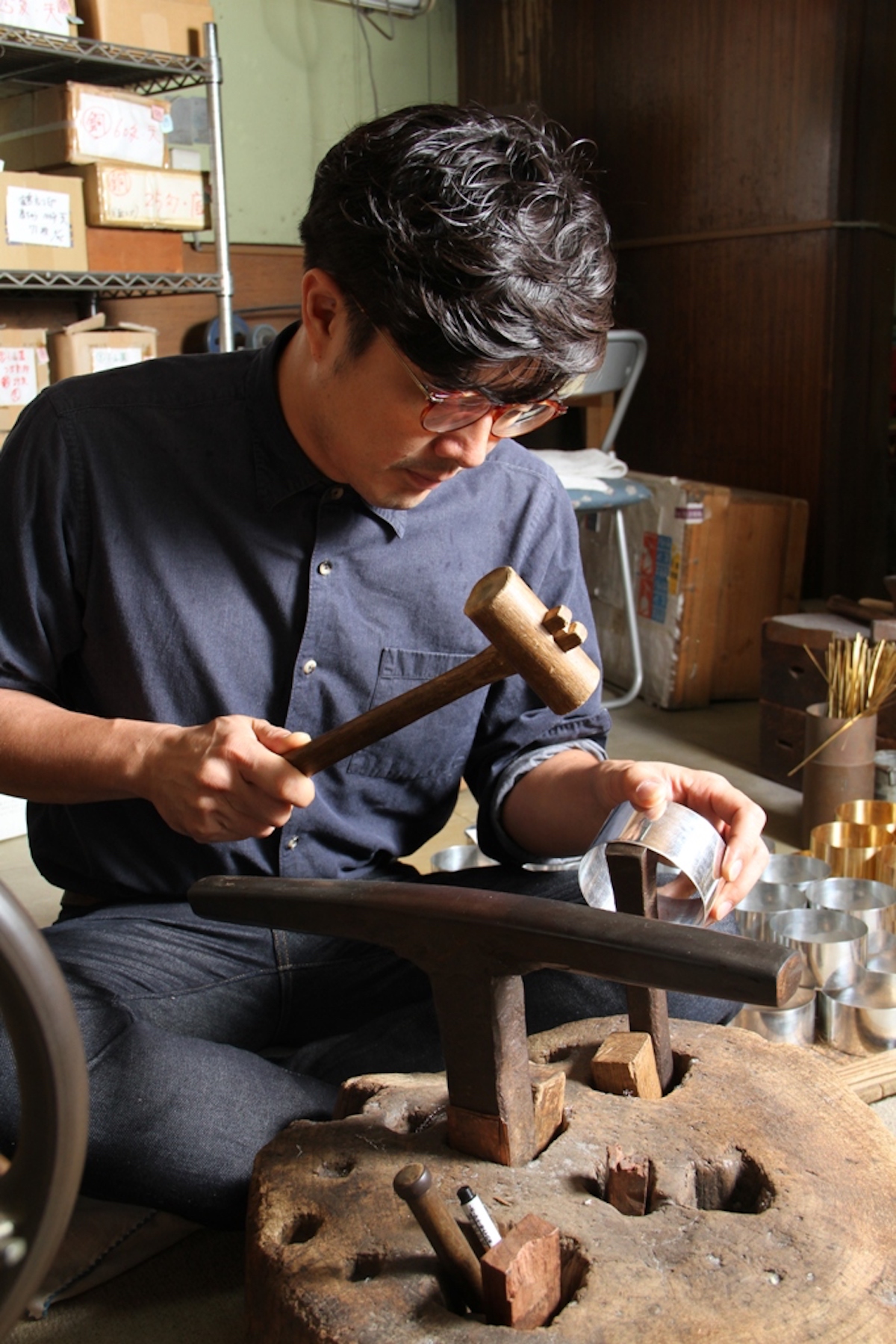
With a background in marketing souvenirs for the international tourism trade, Yagi san several years ago used the knowledge and experience gained in that field to begin showing Kaikado’s products overseas.
“We market our products all over the world now – Taiwan, the United States and even in Britain, where the culture of tea is still strong,” says Takahiro san. “At first, people can’t believe our tea caddies are handcrafted. They think that for something to be so airtight, it must be machine-made!”
Despite expanding into the international market, Kaikado canisters and tea caddies continue to be crafted using the same generations-old methods. What’s more, the business still takes on repair work. Some customers have even brought in tea caddies for repair that have been used in the same family for generations and are over a century old! The rich patina and familiarity that develop with years of constant use continue to delight generations of customers.
Takahiro san, who grew up to the accompaniment of the tap-tapping of hammer on tin, brings a fresh set of eyes to a generations-old tradition as he takes the family business forward into times of change.
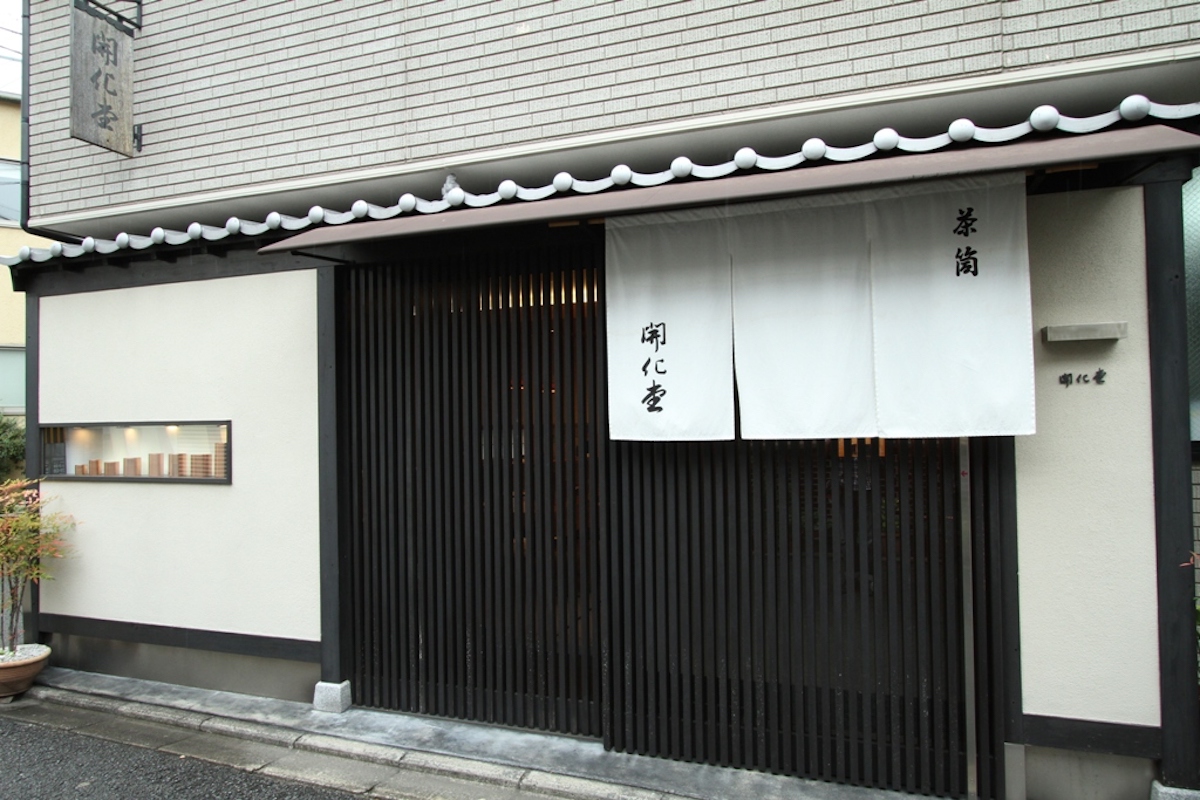
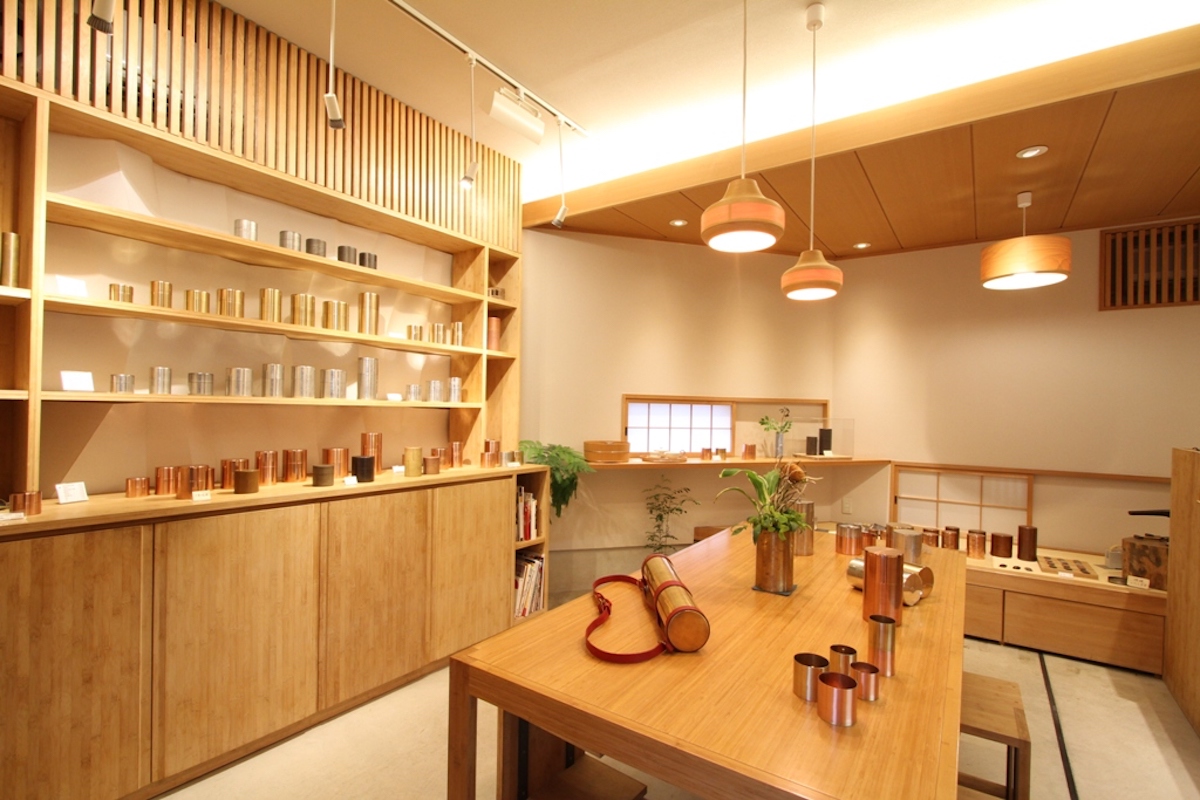
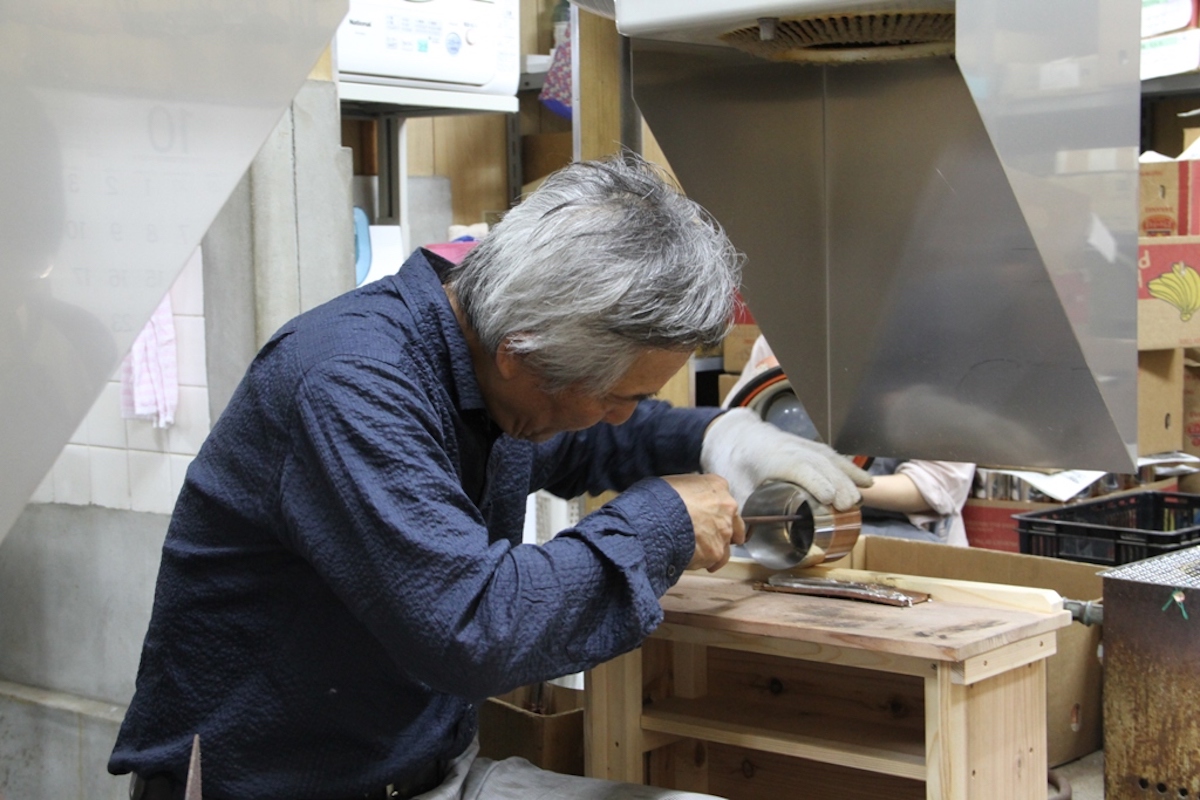
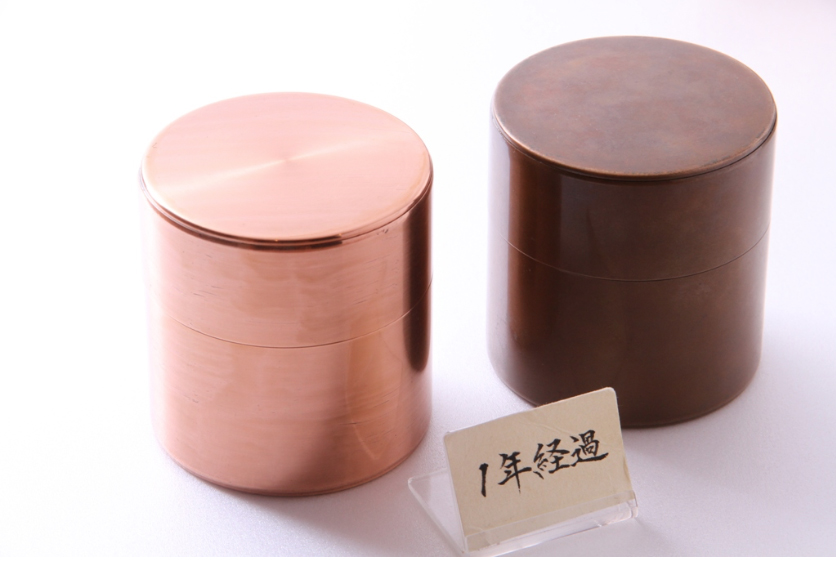
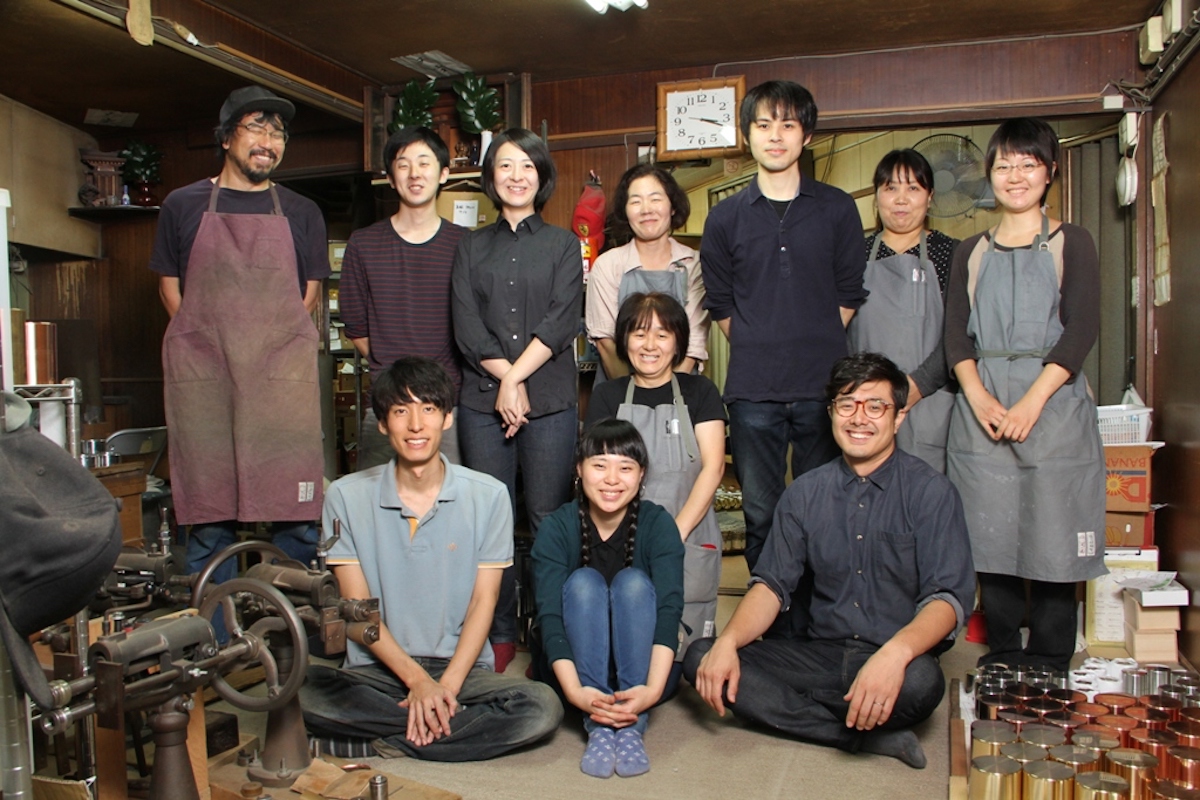
Products
Simple tea caddies are produced in tin, copper and brass, and range in price from 11,500 to 16,000 yen. The business produces a range of types of tin, copper and brass canisters, including airtight canisters for coffee, pasta and confectionery, as well as multi-layered canisters, with and without handles. Kaikado’s “Objects Collection” includes copper teapots and milk jugs, and ice buckets, trays and trinket boxes handcrafted in brass or copper. International shipping is available, so if a trip to Kaikado is out of reach for the time being, be inspired by their website and online store.
Kaikado Café
In 2016, the business was expanded to include a café on Kawaramachi-Dōri, a short stroll from the flagship store. The cafe is housed in a 1927 historical building formerly the workshop and office for the city tram linesmen and that once housed the tram used to maintain the overhead lines. Sympathetic refurbishment work has preserved many of the original features and has transformed this former garage and workshop, which has the look of an old fire station, into a stylish cafe enhanced by minimalist Scandinavian design. https://www.kaikado-cafe.jp/
Kaikado Retail Store
84-1 Umeminato-chō, Shimogyō-ku, Kyōto City.
Phone: 075-351-5788
https://www.kaikado.jp/english/
Hours: 09:00 – 18:00
Closed: Sundays, public holidays; second Monday of every month
Nearest station: 5 minutes’ walk from Keihan Kiyomizu Gojo Station

